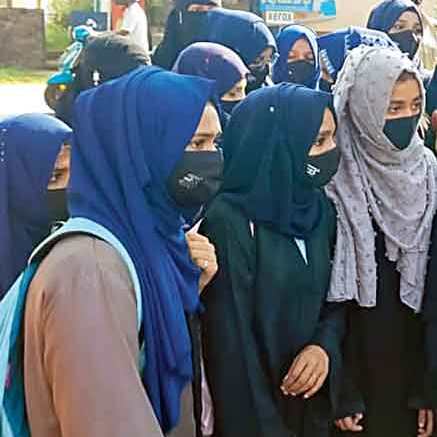

By Our Editorial Team
First publised on 2022-03-16 01:50:52
In deciding the hijab ban case, the two major questions before the Karnataka High Court should have been whether Constitutional rights were violated by schools disallowing the wearing of the headscarf as a matter of individual choice demanded by the sanctity of religion and whether individual rights were violated when the government issued an order banning wearing of clothes that cause law and order problems.
Instead, the court asked itself four convenient questions and answered them in a way that assigned a narrow meaning to all rights. In delving into the fact whether wearing a hijab is essential religious practice under Islam, the court chose to view the matter purely from the religious point of view. While Islam asks women to dress with modesty and wearing a hijab is considered such, the court said that since there is no punishment for not wearing a hijab, it cannot be termed essential to Islam. But that, precisely, is the point. Even if hijab is not essential to Islam, if a girl chooses to wear it as her religion asks her to dress with modesty, she must not be prevented from doing so.
The court then says that prescription of uniforms is a reasonable restriction on fundamental rights and schools and colleges are within their rights if they prescribe a uniform. Even if the need for uniform is recognized and accepted, it also needs to be accepted that India is a diverse country with many local, cultural and religious customs. The uniform policy in schools needs to be flexible. In many areas, Muslim girls are allowed to wear slacks with the skirt prescribed a uniform as they are not comfortable in bare legs. As long as the basic concept of the uniform is not changed, any addition due to custom should be allowed. The court ruling failed to appreciate this.
The Supreme Court has, in the recent past, expanded the rights granted to citizens in the Constitution to prevent executive overreach by assigning a narrow meaning to those rights. But the Karnataka High Court has taken up the matter in a constricted way and has assigned narrow meanings to rights to arrive at this decision. The petitioners will obviously appeal to the Supreme Court as matters of faith, individual choice and constitutional validity are involved. It is now upon the Supreme Court to put these matters to the test of the Constitution.











